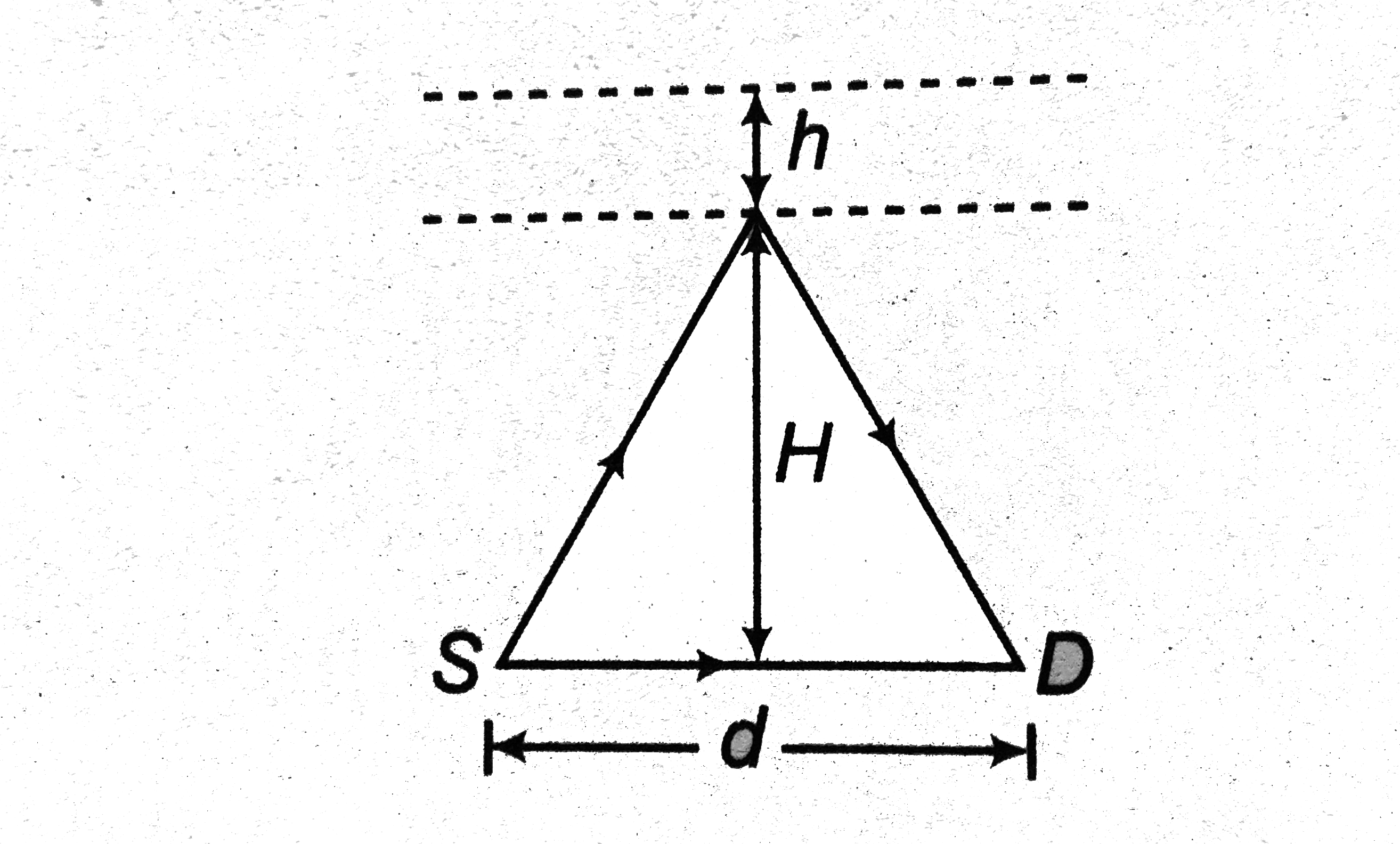The absorption of radio waves by the atmosphere depends on
their distance from the transmitter
the polarisation of the wave
their frequency
the polarisation of the atmosphere
The correct Answer is:C
To solve the question regarding the absorption of radio waves by the atmosphere, we can break it down into the following steps:
1. Understanding the Interaction of Radio Waves with the Atmosphere:
- Radio waves are a form of electromagnetic radiation that interacts with different layers of the atmosphere, particularly the ionosphere.
2. Role of the Ionosphere:
- The ionosphere is a region of the atmosphere that contains a high concentration of ions and free electrons. This layer plays a crucial role in the behavior of radio waves.
3. Reflection and Absorption:
- When radio waves reach the ionosphere, part of the wave is reflected back to space, while a significant portion is absorbed by the ionosphere.
4. Critical Frequency:
- The critical frequency is a key concept in understanding how radio waves interact with the ionosphere. It is defined as the frequency above which radio waves can penetrate the ionosphere rather than being reflected.
- The critical frequency (fc) is given by the formula:
fc=9√Ne
where Ne is the electron density in the ionosphere.
5. Frequency Dependence:
- If the frequency of the incident radio wave is above the critical frequency, the wave will penetrate the ionosphere and may get absorbed.
- Conversely, if the frequency is at or below the critical frequency, the wave will be reflected back into space.
6. Conclusion:
- Therefore, the absorption of radio waves by the atmosphere primarily depends on the frequency of the radio waves. Higher frequencies can penetrate and may be absorbed, while lower frequencies are reflected.
Final Answer:
The absorption of radio waves by the atmosphere depends on the frequency of the radio waves.
---
- Radio waves are a form of electromagnetic radiation that interacts with different layers of the atmosphere, particularly the ionosphere.
- The ionosphere is a region of the atmosphere that contains a high concentration of ions and free electrons. This layer plays a crucial role in the behavior of radio waves.
- When radio waves reach the ionosphere, part of the wave is reflected back to space, while a significant portion is absorbed by the ionosphere.
- The critical frequency is a key concept in understanding how radio waves interact with the ionosphere. It is defined as the frequency above which radio waves can penetrate the ionosphere rather than being reflected.
- The critical frequency (fc) is given by the formula:
fc=9√Ne
where Ne is the electron density in the ionosphere.
- If the frequency of the incident radio wave is above the critical frequency, the wave will penetrate the ionosphere and may get absorbed.
- Conversely, if the frequency is at or below the critical frequency, the wave will be reflected back into space.
- Therefore, the absorption of radio waves by the atmosphere primarily depends on the frequency of the radio waves. Higher frequencies can penetrate and may be absorbed, while lower frequencies are reflected.
The absorption of radio waves by the atmosphere depends on the frequency of the radio waves.
Topper's Solved these Questions
- COMMUNICATION SYSTEM Book:AAKASH SERIESChapter:COMMUNICATION SYSTEM Exercise:LECTURE SHEET (LEVEL - I) (MAIN) (EXERCISE - II) (Straight Objective & More than one Correct Answer Type Questions)
Explore 19 Videos
- COMMUNICATION SYSTEM Book:AAKASH SERIESChapter:COMMUNICATION SYSTEM Exercise:LECTURE SHEET (LEVEL - I) (MAIN) (EXERCISE - III) (Straight Objective & More than one Correct Answer Type Questions)
Explore 26 Videos
- CAPACITORS Book:AAKASH SERIESChapter:CAPACITORS Exercise:PRACTICE SHEET (ADVANCED) (Integer Type Questions)
Explore 2 Videos
- COMMUNICATION SYSTEMS Book:AAKASH SERIESChapter:COMMUNICATION SYSTEMS Exercise:PRACTICE EXERCISE (TV Antenna)
Explore 16 Videos
Similar Questions
Root modification helps in the absorption of moisture from the atmosphere
View SolutionThe phenomenon of absorption of water that depends on water loss from aerial parts of plant (Transpiration) is
View SolutionA source S and a detector D high frequency waves are a distance d apart on the ground. The direct wave from S is found to be in phase at D with the wave from S that is reflected from horizontal layer at an altitude H. The incident and reflected rayes make the same angle with the reflecting layer. When the layer rises a distance h, no signal is detected at D . Negle ct absorption in the atmosphere and find the relation between d,h, H and the wavelength λ of the waves.

View SolutionPassive absorption of minerals salts is not dependent on
View SolutionThe altitude of the ozone layer in the atmosphere and the ‘type’ of the electromagnetic waves emitted by the sun being absorbed by it are respectively:
View SolutionThe phenomena involved in the reflected of radio waves by ionosphere is similar to.
View SolutionAssertion: Ultraviolet radiation are of higher frequency waves are dangerous to huhman beaing.
Reasion: Ultraviolet radiation are absorbed by the atmosphere
View Solution(A) : For long distance transmission of radio waves, short wave bands are used.
(R) : Short waves are reflected from ionosphere.
View SolutionThe speed of electromagnetic wave in vacuum depends upon the source of radiation. It
View SolutionActive absorption and passive absorption
View Solution